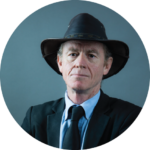Each week, frayintermedia highlights a journalist doing good work on the continent and honours them as our ,#FaveOfTheWeek. Meet 22-year-old Sudanese photojournalist Ula Osman who is passionate about capturing social issues that affect her community. Through her lens she brings attention to Sundanese culture and the lived experiences of the people of Sudan.
Q: How did you become a journalist?
A: I started doing photography in 2016. I was a shy person. I couldn’t verbalise my thoughts and feelings. So I used my phone to take pictures of what I see and how I feel. It helped me to explore my subconscious mind in two ways. It was a tool for self-knowledge and personal exploration that allowed me to be a curious child again.
It’s helped me to open my heart and to connect with people and be compassionate with people and see other people’s stories. So I focused on being present in my everyday surroundings. All of my work comes from people who are living around me, their own stories, how they live and how they dream.
Most of the Sudanese people haven’t been captured by a camera. They are shy and afraid of being exposed through a camera or by any journalist. My first story was about Sudanese women in the revolution, during the sit-in, and after the sit-in and how they change their lives and how they’re starting to change perspectives about Sudanese women.
So it was my first story as a photojournalist. And then after that, I had a field trip to South Sudan. The trip was about climate change and indigenous people and how indigenous people are trying to adapt to climate change. How they are trying to advocate and educate themselves to protect themselves from this nightmare.
So I learned a lot. I was shocked because many of them cannot read or write their own names, but they came to the workshops. They started to listen and spoke out for themselves. And it was eye-opening for me, those people were passionate about their own land, their own hometown.
And because of them, I started doing photojournalism. I dedicated myself to Sudan and educated myself because of them. I want to put out more stories about women in Sudan. So because of this trip, I started learning more about photojournalism and I became more passionate about it.
Q: What draws you to women’s issues?
A: It’s because I am a woman that I am drawn to women’s issues, particularly with sexism and domestic violence is because I have been through this. I totally understand how women feel. I understand that being a woman in a community is hard, especially in Sudan. I am surrounded by women who have been through domestic violence, I even lost my aunt through domestic violence. I started talking more about my story, and a lot of women came to me to talk about their stories, women I did not know. They started speaking about how they felt and what they have been through.
I try to raise awareness and educate people about women’s issues and about abuse and how that affects your mental health. What I do is to reflect my story to allow others to do the same and I put forward solutions. I capture pictures of women that I think are empowered because I don’t want women who have been abused for a long time to see themselves as victims.
I am trying to afford access to positive images of women’s stories and give young women inspiration through storytelling and photojournalism. I do this by reflecting, believing and visualising the best future for ourselves and women too and making that into stories because stories matter.
Q: What stories should African journalists be telling more?
A: I have been raised outside of Sudan and Africa in general growing up and everyone around me was not African but thought that Africa is so simple – I hate that. I think we need to create more narratives around identity and appreciate Africa for being a great side of impressive culture and artistic productiveness.
We need to change perspectives about Africa. This can be done through education and advocacy. We need advocacy stories told by African Africans, this can change an outsider’s perspective about Africa. So we need to write more stories about young Africans constructing narratives on social media. We need to write more on how women can lead Africa to justice, peace, and how the new generation is going to fix Africa by imagining how to shape the future.
Q: Despite all the challenges, why do you continue to be a photojournalist?
A: I want to continue to be a photojournalist because I love photography. Photography is a universal language, and everyone can speak this language and everyone can imagine what’s happening in a photo. And I think photography brings a lot of clarity to nature and the identity of women.
We learn a lot from photography, but as a photojournalist, I want to really find the image of Sudan and Sudanese people. We ought to do this, to tell the unspoken stories and those of the people most ignored.
I want to reflect Sudanese culture, Sudanese identity, for Sudan first, then the region and lastly, for the global community. I focus on photography to capture moments in history for future generations and all people who are living now, by documenting their life and validating their moments.
I’d like to not only reflect on the issues but also be part of the solution. Because people always need to remember and see the importance of their life and this could happen through photography and photojournalism. It’s about reflecting moments and visualising the future.
The whole world could change by looking at one picture.

